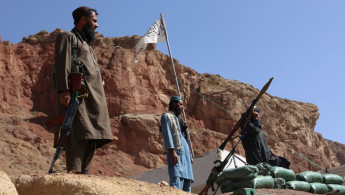Afghanistan: Taliban shut down independent human rights body, arguing 'it was not necessary'
Taliban authorities on Tuesday said they have dissolved Afghanistan's independent human rights commission as it was "not considered necessary".
Since the hardline Islamists seized power last August they have closed several bodies that protected the freedoms of Afghans, including the electoral commission and the ministry for women's affairs.
"We have some other organisations to carry out activities related to human rights, organisations that are linked to the judiciary," deputy government spokesman Inamullah Samangani told AFP, without elaborating.
The work of the rights commission, which included documenting civilian casualties of Afghanistan's two-decade war, was halted when the Taliban ousted a US-backed government last year and the body's top officials fled the country.
The National Security Council and a reconciliation council that promoted peace were also shut down at the weekend as the government announced its first annual budget.
"These departments are not considered necessary, so they have been dissolved. But in the future if they are needed then they can resume their operations," Samangani said.
The Taliban are facing a financial deficit of about 44 billion afghanis (about $500 million) in a country almost entirely dependent on foreign aid.
Taliban claim new women’s dress rules are “advice” but are imposing them as mandatory—including on Afghan women working at UN. Here’s a UN memo from yesterday, and poster Taliban placed outside UN compounds. @UNAMAnews how will you protect your colleagues’ safety & freedom? pic.twitter.com/wTOiRaKyy1
— Heather Barr (@heatherbarr1) May 17, 2022
Heather Barr, associate women's rights director at Human Rights Watch, said it was shocking to see Afghanistan backslide with the closures.
"It mattered enormously to have somewhere to go, to ask for help and to demand justice," she tweeted.
The Taliban previously promised a softer rule than their first regime from 1996 to 2001, but have steadily eroded the freedoms of many Afghans, particularly women, who face restrictions in education, work and dress.





 Follow the Middle East's top stories in English at The New Arab on Google News
Follow the Middle East's top stories in English at The New Arab on Google News


